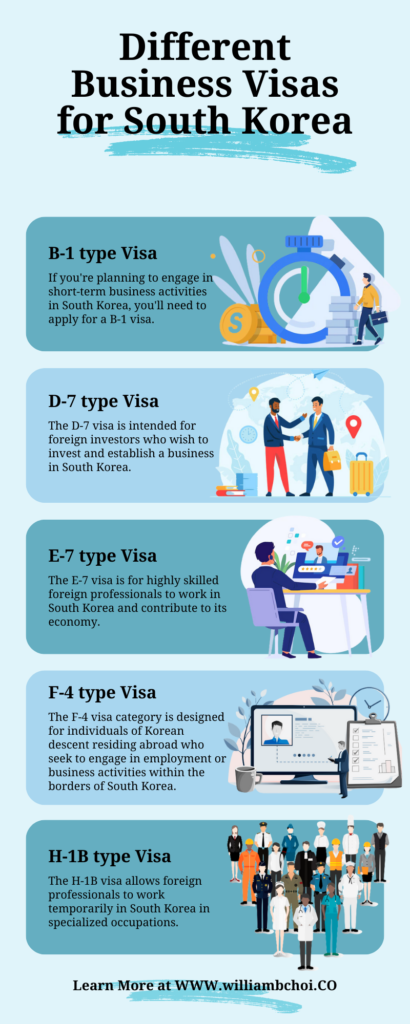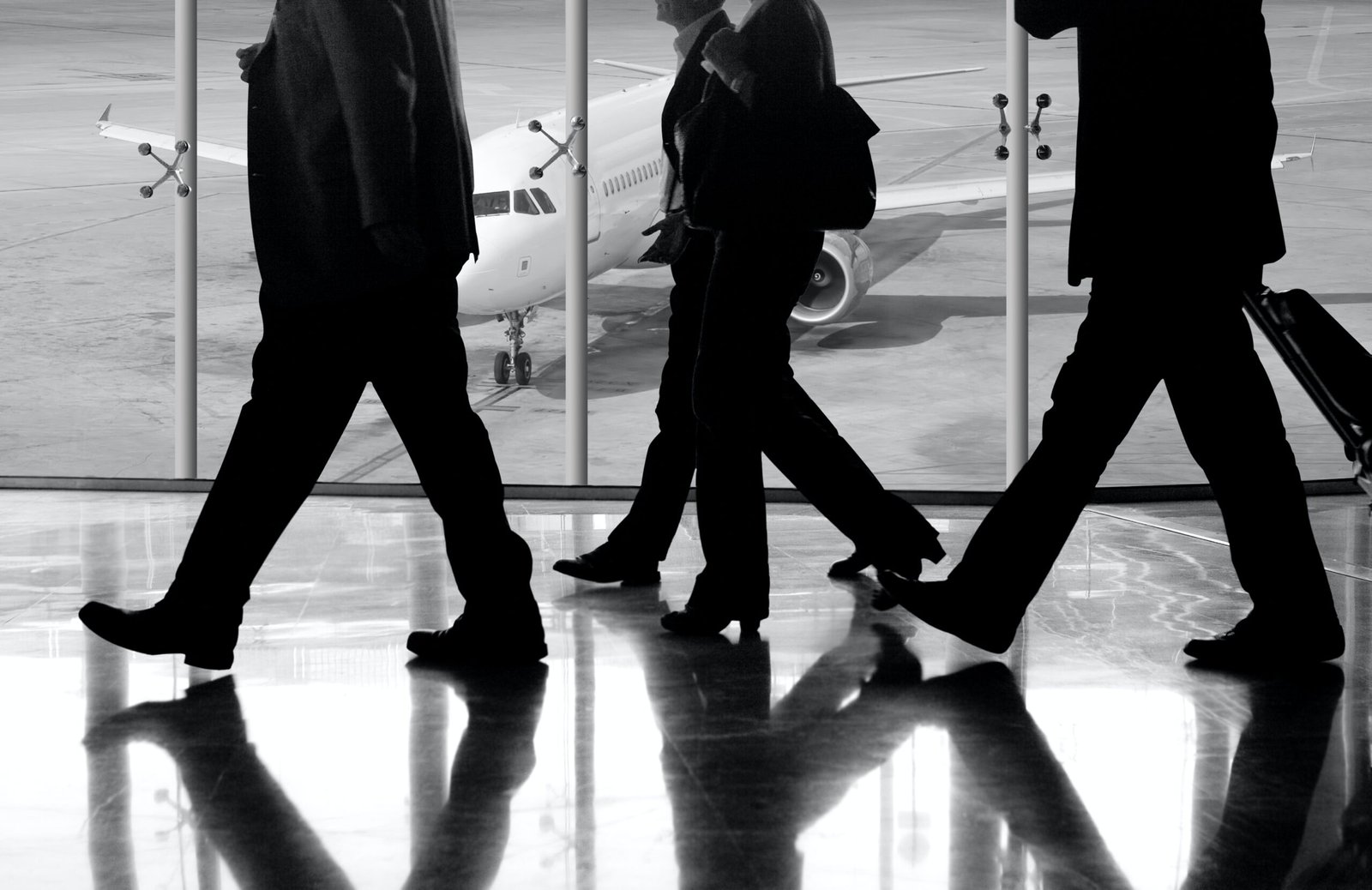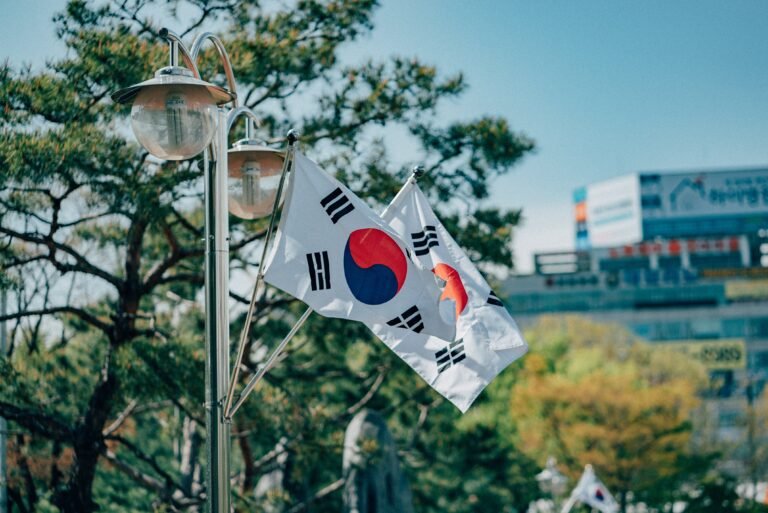Business Travel To South Korea: Insider Insights
In this article, I will discuss the intricacies of business travel to South Korea, a global hub of economic progress and innovation. I will also look at the specifics of business visa requirements and a provide a comprehensive guide to business travel to South Korea.
South Korea, the East Asian nation on the southern half of the Korean peninsula, has undergone an impressive transformation over the decades. From being a war-torn nation, it is now a world leader in technology and culture. For European and North American startups, SMEs, and business executives, this region presents exciting opportunities that come with unique challenges.
If you’re looking to make your mark in the South Korean market, you can consult with me. With my deep-rooted expertise in the region’s business nuances, I can guide you every step of the way in your business endeavors. If you’re looking forward to being a part of this vibrant economic landscape, get in touch with me.
South Korea Overview

South Korea, referred to as the “Land of Morning Calm,” is one of the leading industrialized nations. The country is known for a robust economy, technological advancements, bustling urban centers, and a dynamic mix of tradition and ultra-modern technology.
The East Asian powerhouse, one of the Four Asian Tigers along with Taiwan, Hong Kong, and Singapore, managed to transform itself from the ruins of the Korean War to one of the world’s most dynamic economies in merely a few decades.
With rapid growth in the 1960s and 70s, South Korea prioritized sectors like electronics, steel, and automotive manufacturing. This led brands like Hyundai, Samsung, and LG to emerge as global leaders.
Today, South Korea is the 4th largest economy in Asia and the 12th-largest in the world in terms of GDP. The country’s dedication to R&D is unparalleled, with its investments accounting for 4.81% of its GDP in 2020, up from merely 2.3% in 2001.
The mixed economic system of South Korea includes free markets combined with government regulation and centralized economic planning. South Korea is a member of the Asia-Pacific Trade Agreement (APTA) and Asia-Pacific Economic Cooperation (APEC).
Moreover, the country focuses on fostering a favorable environment for entrepreneurs and startups. Its policies and incentives make it an attractive destination for business ventures, one of the key reasons I’ve been able to help so many tech startups to find success.
South Korea Business Friendliness
South Korea provides a fertile environment for collaboration, growth, and innovation with a government committed to business-friendly regulation.
William Choi
South Korea provides a fertile environment for collaboration, growth, and innovation. The government’s commitment to business-friendly regulation is evident in the country’s ease of doing business and makes it a perfect place for starting a business in South Korea.
Here are some benefits of South Korea that enhance its business friendliness:
- Incentive Programs: With Special Economic Zones (SEZs), Free Economic Zones (FEZs), and other such designated areas, South Korea provides simplified regulations, tax incentives, and financial support for foreign investors.
- Highly Educated Workforce: The country has a strong emphasis on education, leading to a skilled and tech-savvy workforce, particularly in the IT, engineering, and biotechnology sectors.
- Streamlined Business Procedures: South Korea’s efforts to cut red have made it easier for companies to get established. For instance, the Korea One-Stop Business Establishment Center helps simplify the process of setting up businesses for foreign investors.
- Trade Agreements: A network of Free Trade Agreements (FTAs) with major economies ensures easier access to other markets and reduced tariffs.
- Strategic Location: Nestled between China and Japan, South Korea offers a strategic location for businesses requiring access to major Asian markets.
- Robust Infrastructure: The country boasts world-class infrastructure, including top-tier ports, roads, and a high-speed rail system.
- Support for Startups: South Korea is a rapidly emerging startup hub, particularly for the technology and biotech sectors. The government actively promotes start-up ecosystems, with initiatives like the ‘Creative Economy’ policy to support them.
Such a blend of technological prowess and supportive regulations makes South Korea an attractive destination for domestic and international market players.
Visa Requirements For Business Travel To South Korea

If you’re looking for a business venture in South Korea, you must understand the visa requirements. There are specific business visas with specific requirements you must first meet. Here’s how you can apply for a South Korean business visa:
- Download the business visa application form from the official website of the South Korea visa application center.
- Fill out the required details on the form; look into the checklist.
- Ensure you fulfill all the requirements required by the authorities.
- Attach the supporting documents and photographs as specified.
- Visit the nearest branch of the visa application center and submit the application form.
- At the time of submission, pay the fee.
- After the visa processing, collect your passport.
As for the list of supporting documents, you must provide:
- A valid signed passport with at least a six-month validity and at least one blank page for visa.
- A passport-type colored photo with a white background, less than six months old.
- An original letter from the company on behalf of which you’re traveling to South Korea.
- An invitation letter from a Korean entity (for a multiple entry visa).
- Business registration license of the host company in Korea or the Korean entity.
- Onward/return tickets or confirmed itinerary.
Proper research and early applications can ensure a seamless process. For an even smoother application process, contact me for guidance before applying.
Popular South Korean Cities For Business
While most entrepreneurs immediately think of Seoul when looking to enter the South Korean market, there are other cities worth looking into. Each of the major cities can provide benefits for different types of businesses. My team can help you to better understand the pros and cons of each city and help you decide where to locate your headquarters within South Korea.
Seoul

Seoul, the capital of South Korea, is considered a global city and rated as an Alpha city by the Globalization and World Cities Research Network.
The city accounts for approximately 20% of South Korea’s total population while contributing nearly a quarter of the country’s GDP. Home to “Digital Media City” in the district of Sangam-dong, Seoul is renowned for its technological innovation. It’s also the birthplace of global tech giants like LG, Samsung, and Naver.
Apart from its prowess in technology, Seoul’s economy thrives on manufacturing, finance, and services. It’s the headquarters of several financial institutions, banks, and insurance companies. Yeouido, also known as the “Manhattan of Seoul,” is the epicenter of South Korea’s financial industry.
Seoul has multiple Free Economic Zones (FEZs) that offer relaxed regulations, tax breaks, and other incentives to foreign investors. These zones have played vital roles in attracting multinational corporations and global businesses to set up shop in the city.
The government has also initiated various programs to support startups, including providing mentoring, funding, and training opportunities.
Busan

Located on the southeastern coast of the peninsula, Busan is South Korea’s second-largest city. This coastal city is more than just picturesque beaches; it’s also a significant port city. Its ports handle massive global trade, making Busan a magnet for businesses in trade, shipping, and logistics.
Busan Port is one of the largest and busiest ports globally. It’s a critical junction connecting the Pacific Ocean and the Eurasian continent. However, beyond Busan’s maritime advantage, it boasts a diversified economy. From being one of the world’s leading cities for shipbuilding to machinery, electronics, and fashion, Busan has carved niches in multiple industries.
The Busan-Jinhae Free Economic Zone, which spans several districts, is a significant element for foreign investment.
Although Seoul grabs the limelight for technological innovation, Busan isn’t far behind. It houses several tech parks and innovation hubs, promoting an environment of R&D. For instance, the Centrum City area is a hotbed for IT and service industry businesses.
To support its economic aspirations, Busan has made significant investments in communication, transportation, and urban development. The state-of-the-art Busan New Port, expressways, and the Busan Metro system showcase its commitment.
Incheon

Although Incheon’s claim to fame might be its international airport, it is also a hub for logistics and international trade. South Korea’s third-largest city, Incheon, is developing as a modern city with widespread industrial complexes.
The Incheon Free Economic Zone (IFEZ) attracts myriad industries and offers various incentives for business travelers, fostering a promoting environment for growth and investment. The IFEZ spans three regions – Songdo, Cheongna, and Yeongjong. In particular, Songdo stands out as a “smart city,” with state-of-the-art facilities and sustainable urban planning, attracting international organizations and global businesses.
Incheon’s industrial capabilities are diverse, from shipping and logistics to biotech, finance, and tourism. Designated districts like Incheon Techpark and the Namdong Industrial Complex promote research, innovation, and industrial growth.
Its close proximity to Seoul offers businesses in Incheon dual advantages. You can tap into the markets and vast resources of Seoul while enjoying the strategic benefits offered by Incheon.
Daejeon

A city buzzing with research institutes, universities, and science fests, Daejeon is a nexus for transportation. Also known as the “Silicon Valley of South Korea,” Daejeon houses the Daedok Innopolis, a vast R&D hub home to approximately 60 research institutes, 1,300 businesses, and over 40,000 researchers.
The city boasts prestigious institutions like the Korea Advanced Institute of Science and Technology (KAIST), which is among Asia’s leading science and engineering universities. Its focus on knowledge and innovation ensures a steady influx of highly-skilled talent, hence supporting innovative startups and strengthening established industries.
Daejeon’s central location keeps it well-connected to major South Korean cities, making it an attractive choice for logistics and trade. Moreover, its sophisticated transportation infrastructure facilitates swift business operations.
Beyond R&D, the city excels in sectors like information technology, machinery, electronics, and advanced materials. Dedicated to pushing the boundaries in these fields, Daejeon offers ample opportunities for businesses to thrive and innovate.
The connectivity, combined with a focus on knowledge and innovation, makes Daejeon an attractive spot for tech ventures and startups.
Gwangju

Located in the southwestern part of the peninsula, Gwangju is a city renowned for its rich history and cultural heritage. It also has strong economic sectors, particularly in the automobile and manufacturing industries.
With a focus on eco-friendly and energy-efficient technologies in recent years, Gwangju has attracted businesses from around the globe. The city’s move towards sustainability and technological advancements makes it a notable destination for green tech businesses. Efforts like the Bitgaram Energy Valley project aim to foster businesses in energy technology.
Gwangju has established itself as a pivotal node in South Korea’s automotive industry. Kia Motors, one of the nation’s largest car producers, has its key manufacturing units in Gwangju. This concentration of automotive businesses provides opportunities for ancillary industries, from logistics firms to auto-parts suppliers.
The city’s universities, including Gwangju Institute of Science and Technology (GIST) and Chonnam National University, provide educated professionals, fueling innovation.
While Gwangju may not be as central as some other major cities, its location offers strategic access to sea routes, making it vital for trade and logistics.
5 Considerations For Business Travelers to South Korea
Here’s a list of five essential factors that business travelers should consider when visiting South Korea:
One of the most important things for you to get down is proper business etiquette. Failure to respect local customs can sink your business endeavors in South Korea before you get started.
William Choi
Business Etiquette
For successful business dealings, it’s crucial to understand and respect local customs. From the importance of punctuality to the way business cards are exchanged (using both hands), attention to detail can make or break business relations.
Business Card Exchanges: Don’t forget to use both hands and ensure the card faces the recipient when presenting or receiving a business card. This gesture signifies respect. If you’re receiving a card, read it with respect before placing it on the table.
Greetings: Bowing is a standard greeting, and the depth of the bow symbolizes the level of respect. A 30-45o bow is the standard way to greet someone new, an elderly person, or a boss.
And while handshakes are common, waiting for the senior-most member to initiate is essential. Take it with both hands without standing straight.
Time Management: Seeing as first impressions matter, it would help to ensure punctuality. Arriving on time is a sign of respect. Owing to extremely busy schedules, top Korean business executives may arrive a few minutes late to appointments.
While cancellations are normal, recurring cancellations indicate the other party isn’t interested in doing business.
Drinking Culture
Social drinking, often in the form of soju rounds, plays a pivotal role in business networking. More than just a pastime, it presents an avenue to build and solidify relationships.
After-work drinking sessions, known as “hoesik,” foster camaraderie and can influence business decisions. While this isn’t obligatory, participation could enhance your relationship with potential business partners. In the midst of it all, always ensure to drink responsibly.
Corporate Hierarchy
The corporate world of South Korea reveres seniority. This hierarchy is deeply embedded in the corporate culture and influences everything from seating arrangements in meetings to decision-making processes.
Decisions often flow from the top as a mark of respect to senior members.
Gift Giving
No matter how small, a token of appreciation can cement business relationships. However, it’s vital to understand what gifts are deemed appropriate and their significance in Korean culture.
The ideal gifts are inexpensive and good quality items. Gifts such as cakes, fruit, and liquor are staples. Items that represent your home country or company would be impressive and appreciated.
Ensure you don’t give lavish gifts, which may be considered bribery. Also, the receiver of the gift will feel obligated to return a gift of the same value.
When receiving gifts, it’s courteous to open them later and not in the presence of the giver.
Corporate Dress
While the global corporate culture is gradually leaning towards casual attire, South Korea largely adheres to formal dressing norms.
A crisp, dark-colored suit, a white shirt, and a dark tie for men, and professional, modest wear, like conservative dresses, suits, or skirts for women, is the norm. It is customary to take one’s shoes off (at home, a restaurant, etc.) So, ensure you have clean and conservative socks on.
It’s essential to consider the season when dressing up in formal attire, as summers can be hot and humid.
Bonus Tips For a Smoother Experience
Remember that Seoul traffic can be busy at all times of the day. Try and get a hotel near your meetings and ensure you leave plenty of time to get to your destinations on time.
William Choi
To further help you navigate business travel to South Korea, here are a few bonus tips. These can help you to have a smoother experience and help you to minimize potential issues.
Bring Power Adapters
South Korea uses Type C and F outlets with a 220V supply voltage and 60 Hz. Consider carrying a universal power adapter to ensure you stay connected without any worries.
Pick a Hotel Close To Your Meetings
Seoul’s traffic can be pretty dense. Opting for a hotel near your meetings can reduce commute time and stress. It also offers more preparation time.
Besides, choosing a central location allows easy access to public transportation, restaurants, and cultural sites.
Final Considerations For Business Travelers
With a unique blend of tradition and modernity, South Korea is a promising destination for business opportunities. A successful business endeavor here requires more than just market knowledge; it demands understanding the society’s cultural nuances, values, and intricacies.
As you embark on your South Korean business journey, remember the key to fruitful collaborations is blending professionalism with cultural understanding. South Korea beckons business travelers with open arms.
Looking To Open a Company In South Korea
Get The Help You Need Before Traveling
- Risks of Doing Business In South Korea: Navigating The Landscape - September 27, 2023
- Business Networking in South Korea: Maximizing Your Opportunities - September 27, 2023
- The Rising Dragon: Advantages of Doing Business In South Korea - September 27, 2023



